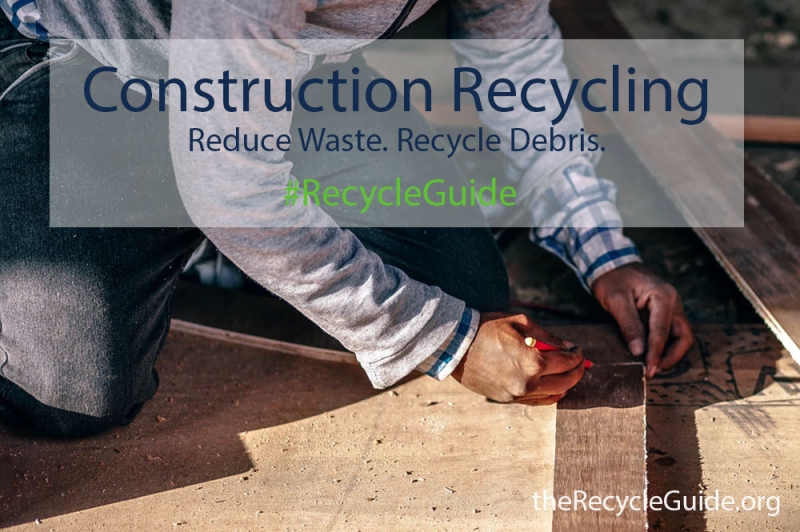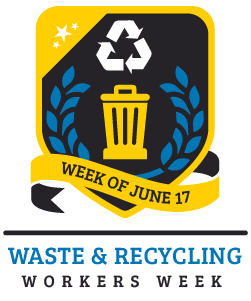
Many items that seem like waste at a remodeling or construction site can actually be recycled. This can include building materials such as concrete, tile, wood or lumber, drywall, plastics, doors, windows, insulation and carpet. Here are some tips for reducing waste, recycling construction debris and making your next project environmentally friendly.
Know What You Need
When starting a new project, the best way to minimize waste is to determine what materials are needed for each step. Once you know the sizes and shapes you need, carefully plan to maximize those products. When planning a DIY project, compare your needs with what dimensions are available from the store. Choose materials that allow you to minimize unused sections.
If you are working with a contractor, ask how they intend to minimize waste from new materials. Let them know it is important to you that their process includes plans to be environmentally friendly. As an added bonus, reducing waste can also reduce the strain on your wallet.
Choose a Contractor that Recycles
If you have the option, selecting a contractor that includes responsible environment practices in their planning and business model is a great choice. Ask prospective contractors about their standard recycling practices. They should be able to tell you what debris materials they are able to recycle. They may also be able to give you estimates on the waste they anticipate as a result of your construction, renovation or remodeling project.
When you are choosing your contractor, research the company and the products they use, recommend and sell. Are they well versed in recycling practices? Do they choose sustainable and recyclable products? Many companies have adopted environmentally friendly principles and will share this information on their website or marketing materials.
Pick Materials Wisely
This is also a good time to consider sustainable materials. If you have specific materials in mind, let your contractor know. If you are not sure, don’t be afraid to ask. With their extensive experience, your contractor may be able to recommend sustainable products you would never have considered.
If sustainable products are not an option, consider materials that can be easily recycled. This will make it easier to recycle any project waste and future remodeling debris.
Responsible Recycling at a Construction Site
- When possible, deconstruct a structure instead of demolishing it. This is the most sustainable method for removing or renovating a structure
- Identify materials that have been treated with chemicals. It may be necessary to recycle or dispose of them differently to prevent chemicals from leeching into the environment.
- Sorting is key when working at a construction site. Containers for recyclable materials should be set up on site and clearly labeled.
- Construction personnel should be trained in material sorting policies and bins should be monitored periodically to prevent waste mixing.
- Identify materials that will require covered bins or storage that provides protection from rain.
- Consider locking bins to prevent tampering and accidental contamination caused by individuals throwing trash into recycling bins.
For more information on how to recycle specific construction materials, visit theRecycleGuide.org.
Share with us on Facebook and Twitter. Do you have experience working with a contractor who recycles? Did you recently complete a home renovation where you recycled materials? Use #RecycleGuide to tell us more!
Recycle Item of the Month brought to you by…
|
|

















